Few things define a culture quite like its food, and the United States is no different.
From regional favorites like collard greens and cornbread to the country’s allegiance to boxed macaroni and cheese, the U.S. is a place of seemingly endless gastronomic choices. However, some foods are practically impossible to find stateside, and that’s because they’ve landed on the banned food list.
Recommended Videos
That’s right, there are certain foods eaten throughout the world that simply aren’t allowed in the States. In some cases, the Food and Drug Administration is responsible for keeping treats from crossing the border, but sometimes, food violates state laws or the court of public opinion.
Check out the Florida Foodie podcast. You can find every episode in the media player below:
Stacker has compiled a list of foods and beverages banned across the entire country, by certain states, or in schools. In some cases, these bans have made it nearly impossible to find these foods in the U.S. — at least not in the form they’re available throughout the rest of the world.
From tasty cheeses to the famed Scottish dish haggis, these 30 foods aren’t welcome in most of the United States.
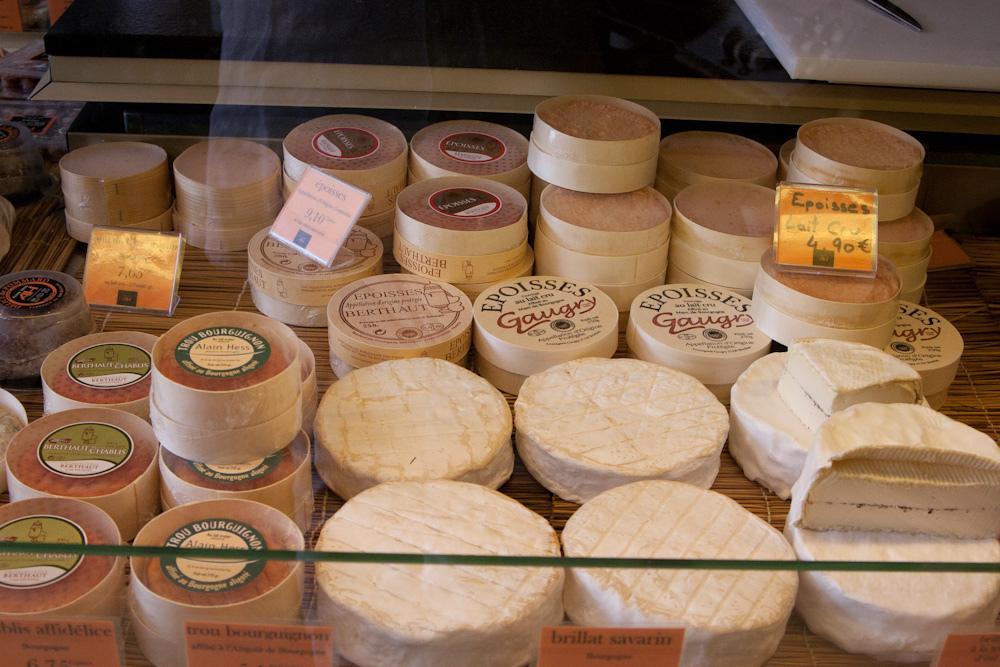
Magnificent Epoisse // Wikimedia Commons
Epoisses cheese
Époisses has a strong odor and bold taste, but the French cheese isn't sold in America, at least not in its traditional form. This is due to the cheese being made from unpasteurized, raw milk and being under 60 days old. If you want to try the real deal, you may have to plan a European vacation.

Kitz000 // Wikimedia Commons
Silver dragees
Silver sprinkles are commonly found on baked goods, especially during the holidays, but according to the FDA, you're not supposed to eat them. The sprinkles are officially classified as inedible because silver is not supposed to be used as an additive or color in food. So while you can buy silver sprinkles at any grocery store, you're not supposed to consume them.
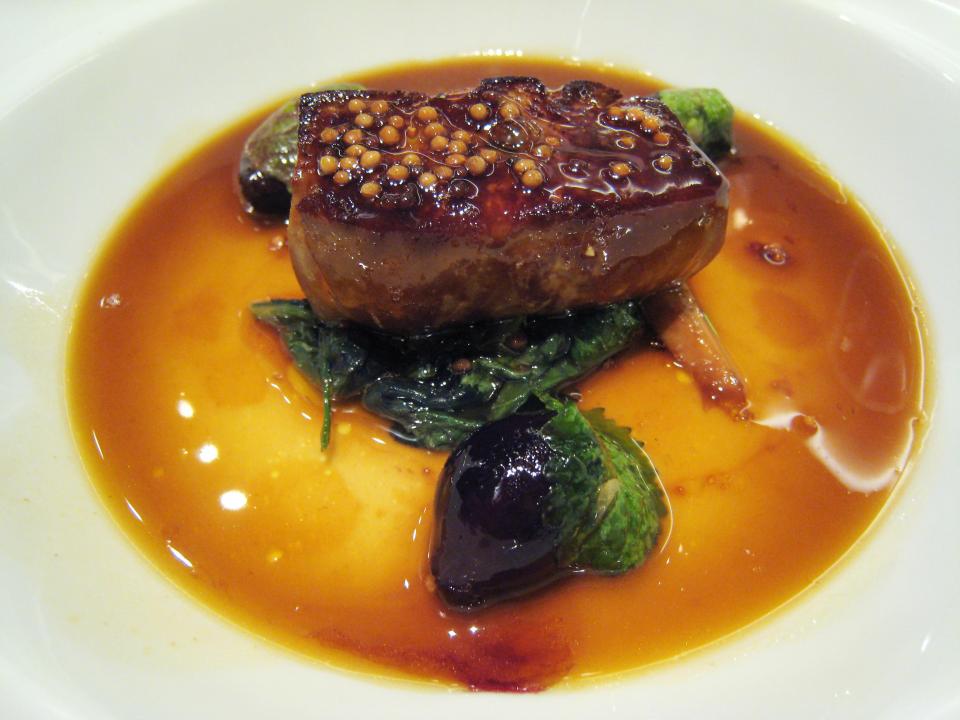
Charles Haynes // Wikimedia Commons
Foie gras
While you can eat foie gras in some parts of the country, the luxury food item is banned in the state of California. Foie gras is controversial due to the controversial method of force-feeding ducks and geese, which causes their livers to grow much larger than normal and can lead to a painful disease.
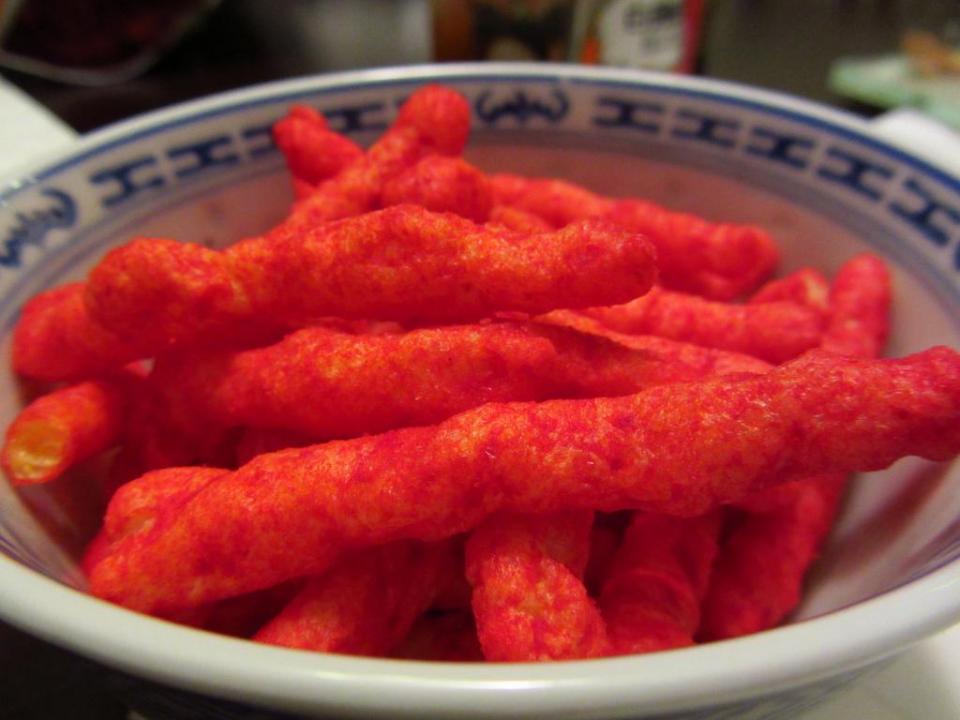
 Calgary Reviews // Flickr
Flamin' Hot Cheetos
The FDA hasn't waded into the debate over Flamin' Hot Cheetos, but the popular snack food has become public enemy #1 in school districts around the country. Since 2012, some schools in California, New Mexico, and Illinois have banned the hot Cheetos due to their lack of nutritional value, and, well, messiness.
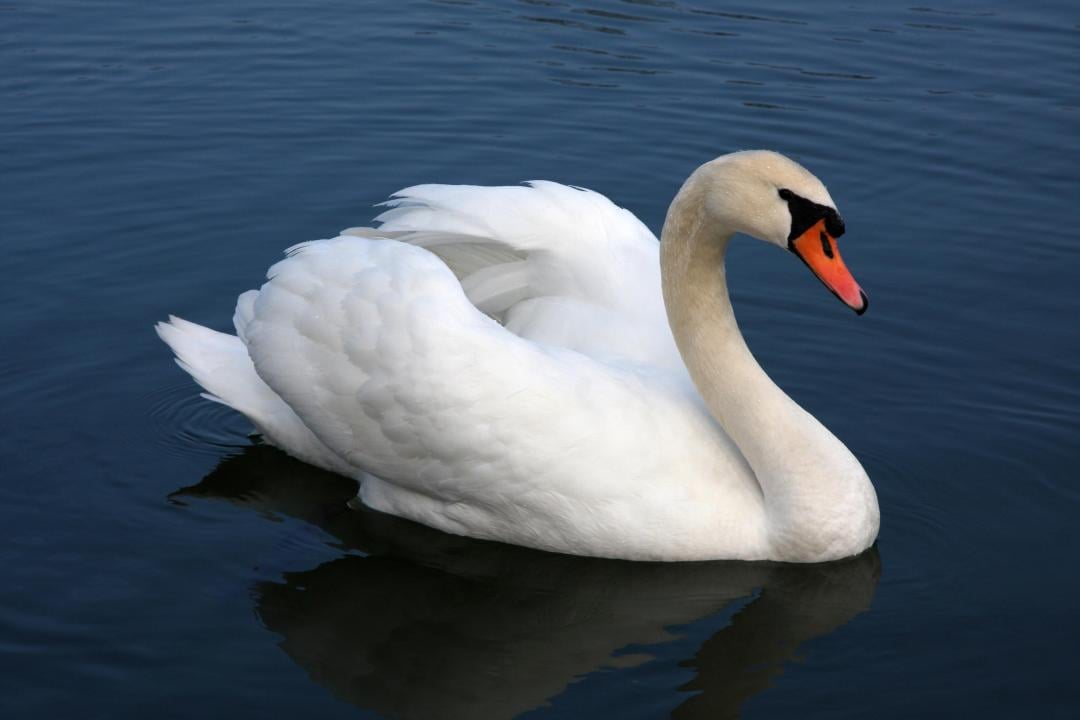
Yerpo // Wikimedia Commons
Swan
Like many other animals on this list, certain swans are endangered species, including the trumpeter, which is native to North America. Hunting and eating the tundra swan is legal in some areas of the U.S., but trumpeter swans are illegal to hunt across much of America.
You may also like: What marriage was like the year you were born

Kathy Clark // Shutterstock
Sassafras oil
Nope, your root beer does not contain authentic sassafras oil. The oil has been deemed a potential carcinogen and has been banned nationally as a result. However, it is not banned in substances where it occurs naturally like cinnamon and basil.

Cory Doctorow // Flickr
Junk food
There's no shortage of junk food in America, but California, Massachusetts, New York, and New Jersey have banned junk food and sodas from schools in an effort to promote better health among students. Canada has a similar ban that has reportedly helped lower the body mass index of students who attend schools where the ban is in place.
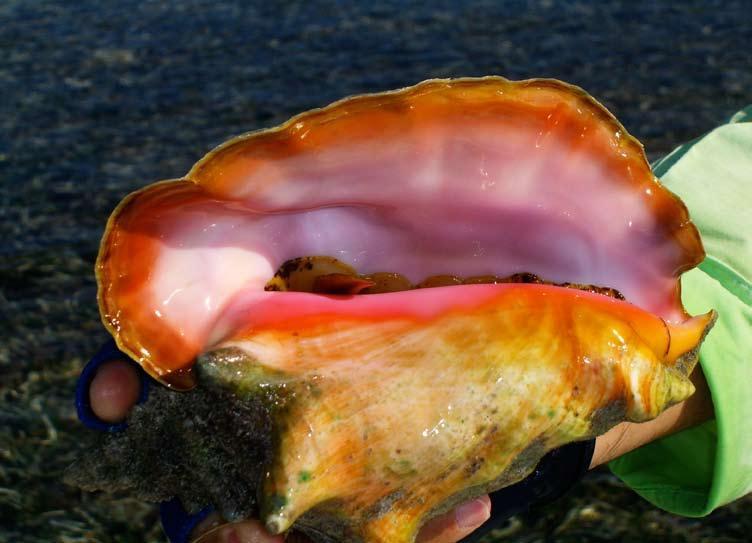
Wikimedia Commons
Queen conch
Queen conch meat is a favorite dish throughout the Caribbean, but overfishing has made harvesting the mollusk illegal. However, according to the Fish and Wildlife Service, the U.S. is "responsible for the consumption of 80% of the world's internationally traded queen conch."

P. Lindgren // Wikimedia Commons
Sea turtles
Sea turtles are on the endangered species list, but it's still legal to hunt them in 42 countries and territories worldwide—the United States isn't one of them, though. While sea turtles have been used to make turtle soup in the past, their endangered status has led to the dish falling out of popularity.
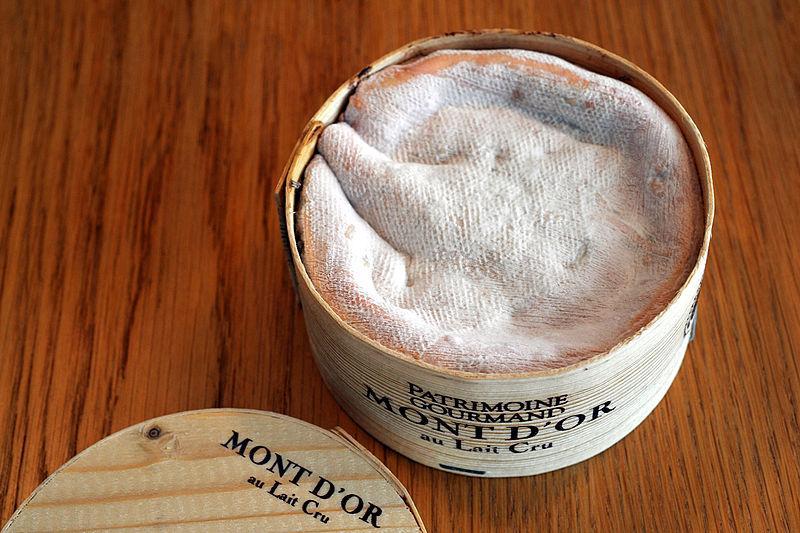
Chriusha // Wikimedia Commons
Mont d'Or
Mont d'Or might be the holy grail of French cheese. The tasty fromage is only made once a year between August 15 and March 15. It's made with unpasteurized milk, and as a result, it can't be sold in the United States. However, cheese lovers have been known to go to extremes to taste the legendary Mont d'Or.
In a 2016 interview with Vogue, cheese connoisseur chef Ryan Hardy said: "By French AOC certification law, it cannot be made from pasteurized milk, so it can never be allowed in the United States. Its unctuous, creamy pate is only eaten when you peel back the rind. It's then that you realize it's the gangster, white truffle of all cheeses. This is the black market cheese."
You may also like: Bizarre slang words and phrases from every state
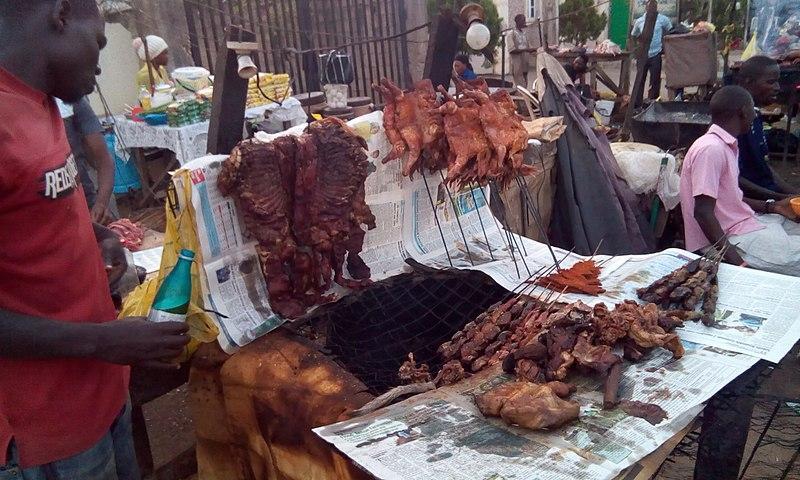
Okwusman1 // Wikimedia Commons
Bushmeat
The term bushmeat refers to various African wildlife, some of which are on the endangered species list and are killed and consumed in Africa. Importing the meat to the United States and most other countries is illegal because of the protected status of the species and the health risks associated with eating the meat.
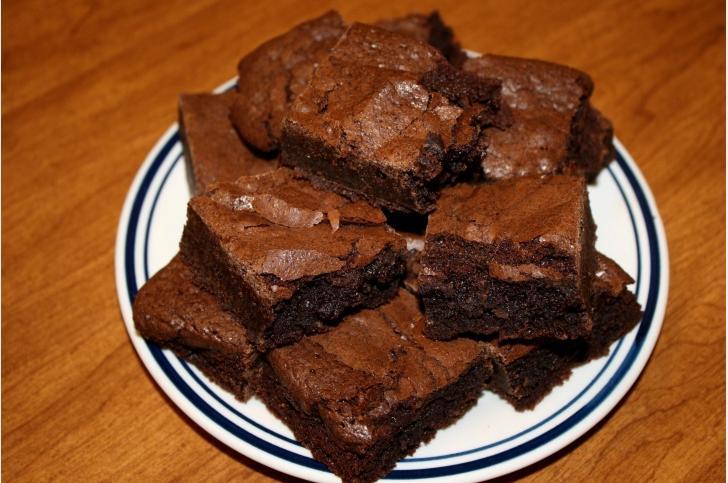
Pixnio
Lazy Cakes
In 2011, Lazy Cakes, a brownie with 8 milligrams of melatonin (more than the recommended dose for an adult), faced serious scrutiny from the FDA. After some children were hospitalized after eating the brownies, the state of Arkansas moved to ban the snack. Meanwhile, the FDA warned the company that melatonin is not an approved food additive. Lazy Cakes argued that their brownies were actually dietary supplements, not food, and they changed their name to Lazy Larry.
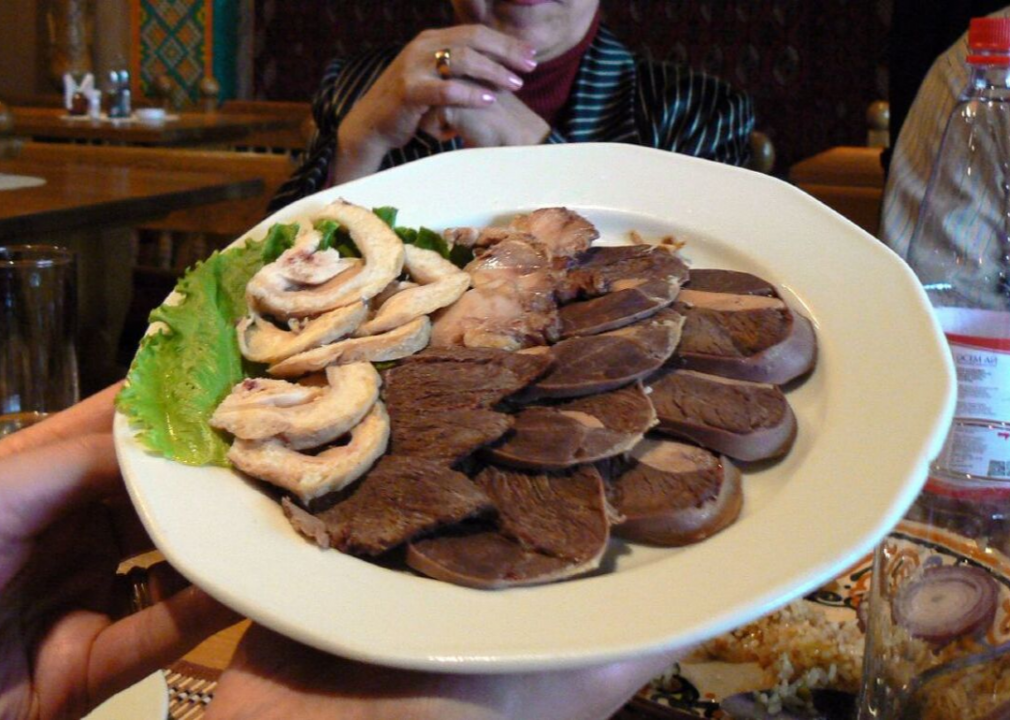
Sara Yeomans // Wikimedia Commons
Horse meat
Eating horse meat isn't technically illegal in America, but it's certainly taboo. The United States exports horse meat to other countries where eating horses is a custom. However, the government has made it hard to consume horse meat in the states due to Congress' ban on the Department of Agriculture funding horse meat inspections. Meat that hasn't been inspected is illegal to serve, distribute, or sell, making the consumption of horses all but impossible.
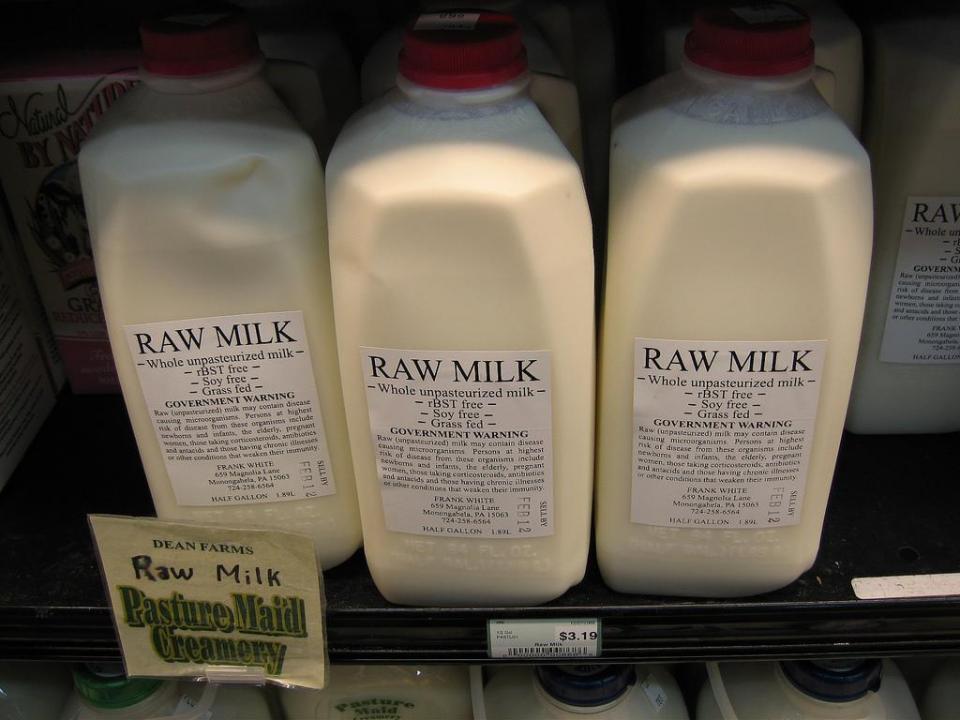
Desiree N. Williams // Flickr
Raw milk
According to the FDA, "raw milk can harbor dangerous microorganisms that can pose serious health risks." Since the FDA does not regulate the sale of raw milk, it cannot be sold across state lines. Some states allow the sale of raw milk at retail stores, farmers markets, and farms, but others ban it outright.
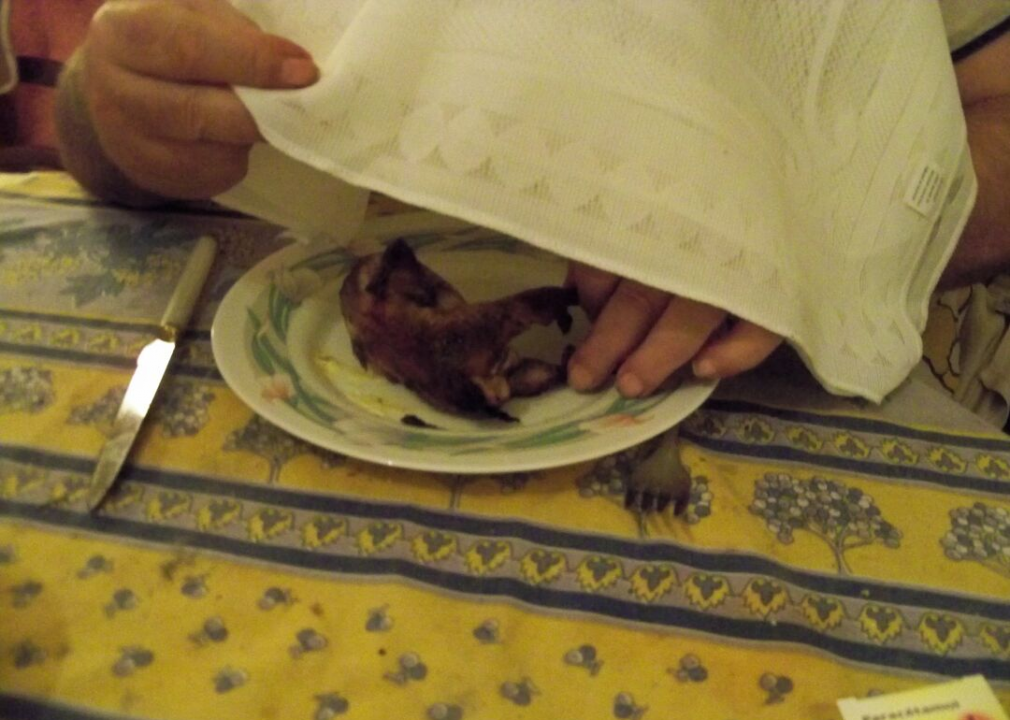
Marianne Casamance // Wikimedia Commons
Ortolan
According to the French, the little songbirds known as ortolans are delicious. The birds are captured, force-fed, and drowned in Armagnac before being cooked. They are then consumed whole, beaks and all. The process alone sounds gruesome, but what's even more disturbing is that the birds are facing extinction. As a result, eating ortolan has been banned in the United States and by the European Union, although France has been lobbying to change the rules.
You may also like: 1 million species are facing annihilation—inside Earth's sixth mass extinction event
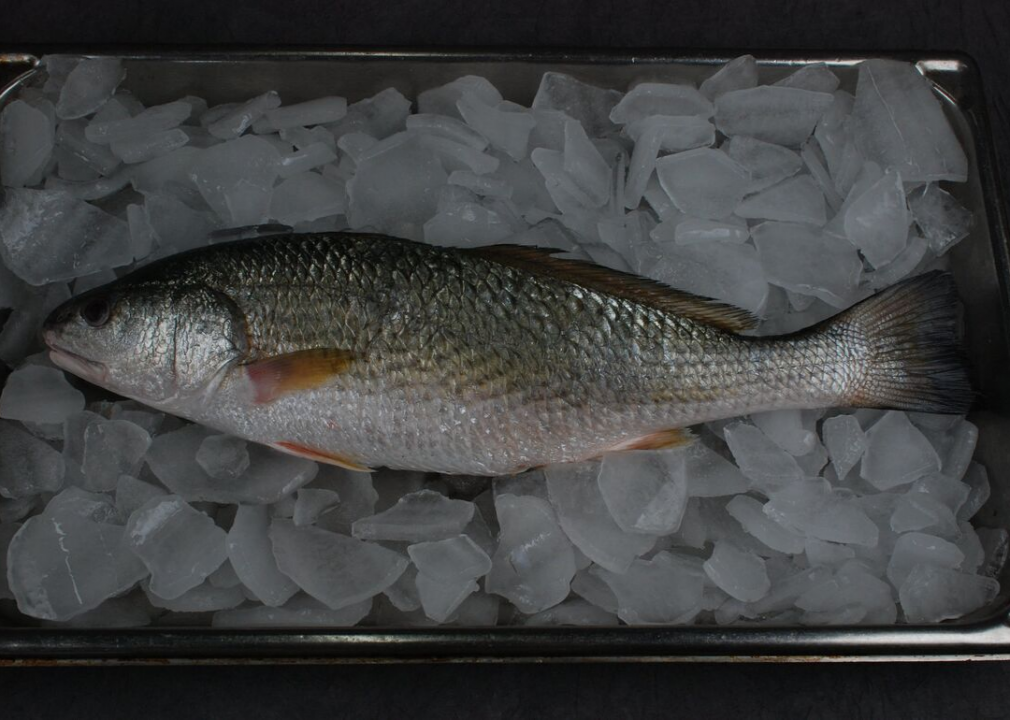
Louisiana Sea Grant College // Flickr
Redfish
In the 1980s, redfish experienced a boom in popularity that led to it becoming a favorite across the country. However, there simply wasn't enough of the rare fish to meet the demand of the people, which led to redfish landing on the endangered species list. As a result, the fish is now banned in every state except for Mississippi, where they can be caught for personal use.
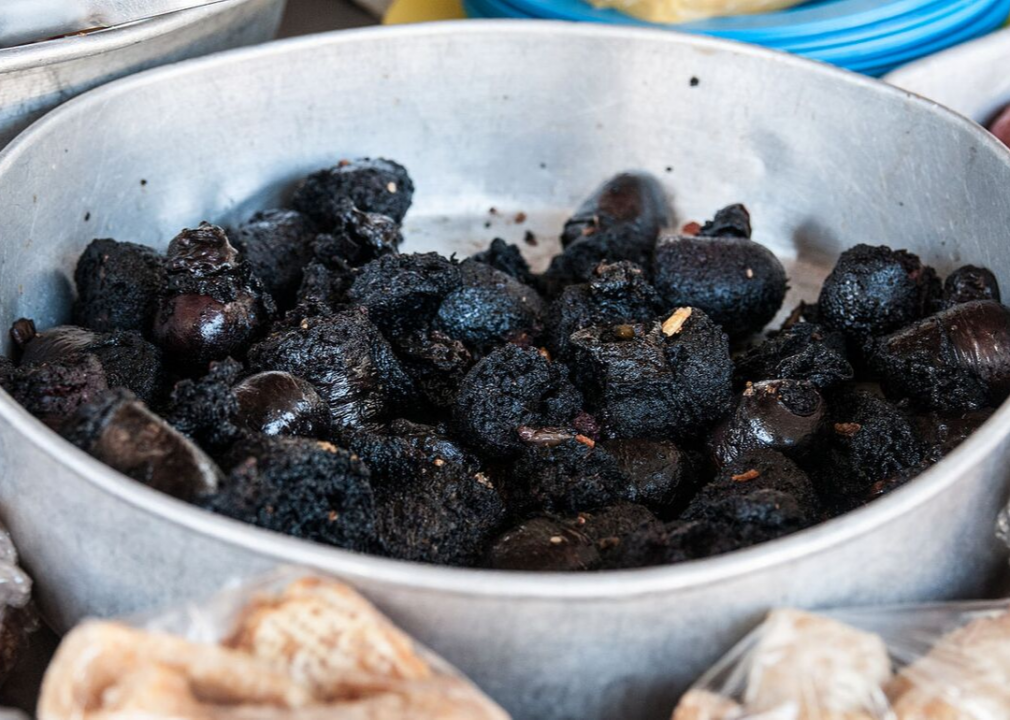
The Photographer // Wikimedia Commons
Black pudding
Like haggis, Stornoway Black Pudding is a U.K. favorite that contains sheep's lungs. This ingredient makes it illegal to import into the United States, despite it being a regular menu item across the pond.
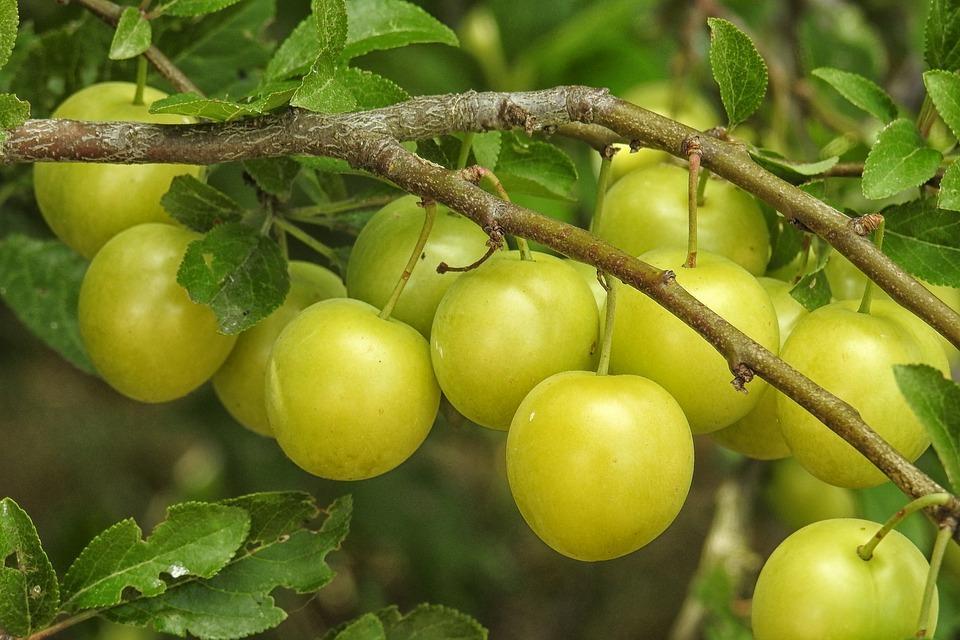
Pixabay
Mirabelle plums
Unlike some of the other foods on this list, there are no health risks associated with eating Mirabelle plums, they've simply fallen victim to import laws. True Mirabelle plums are only grown in Lorraine, France, and are considered a "protected origin" food. An agreement between the U.S. and France to protect the French market keeps them from reaching the states.
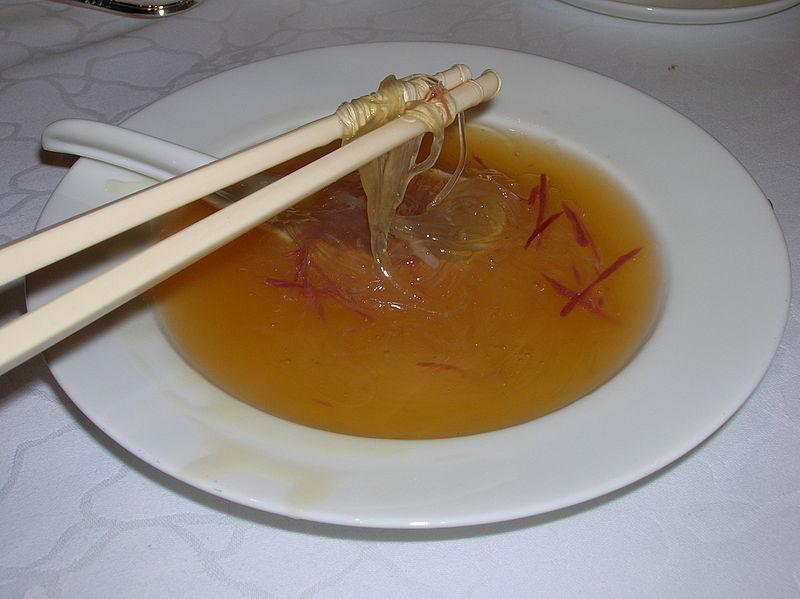
Tzahy Lerner // Wikimedia Commons
Bird's nest soup
Bird's nest soup is a favorite dish in Asian countries like China, but you won't find it on menus in the United States. Made from the solidified saliva of swiftlets, the bird nests are high in calcium, iron, and magnesium. However, they also carry a health risk, according to the FDA. The fear that the nests could play host to the highly pathogenic avian influenza virus prevents them from landing on menus at a restaurant near you.
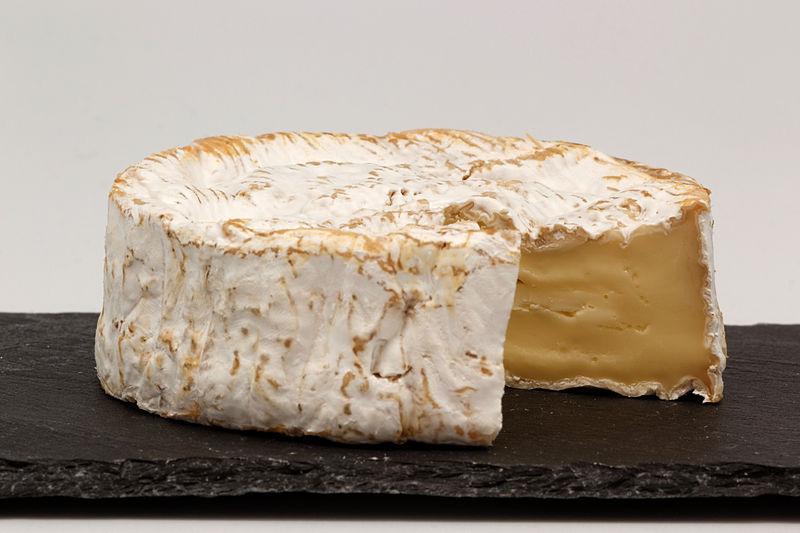
Coyau // Wikimedia Commons
Camembert
American camembert cheese is available across the country, but the authentic Camembert de Normandie cannot be found in the U.S. Like authentic brie, true camembert is an unpasteurized or "young cheese" that doesn't meet the FDA's safety standards.
You may also like: States doing the most for a clean energy future
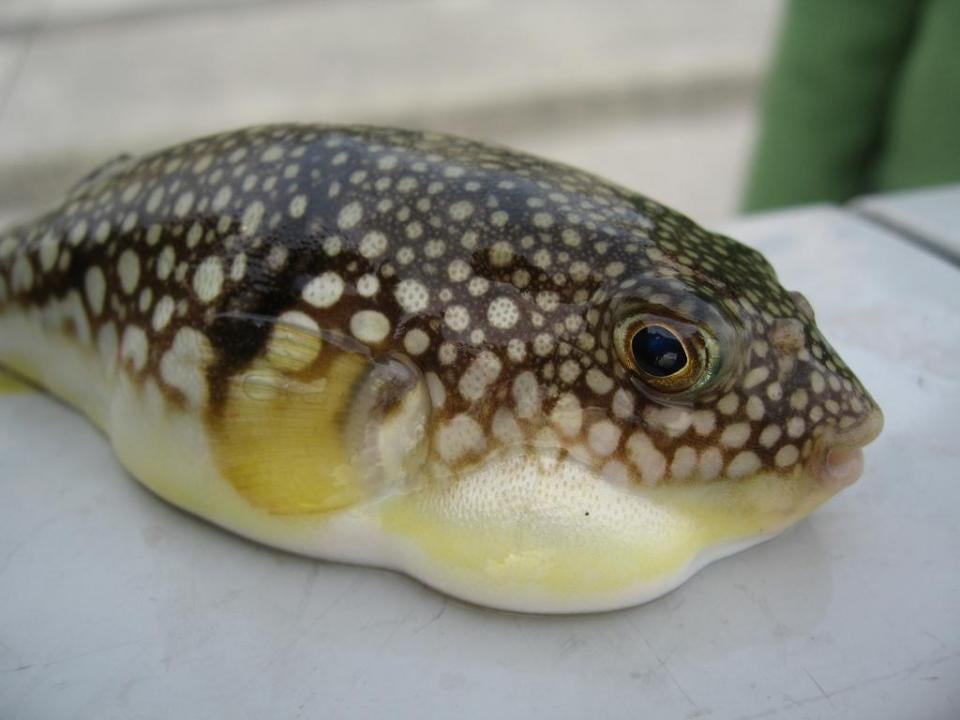
furibond // Flickr
Japanese pufferfish
In Japan, pufferfish is served at fine dining establishments, but the dish can turn deadly when prepared incorrectly. According to the FDA, Japanese pufferfish contain tetrodotoxin and saxitoxin, central nervous system toxins that "are more deadly than cyanide." As a result, the dish is rarely served in America.
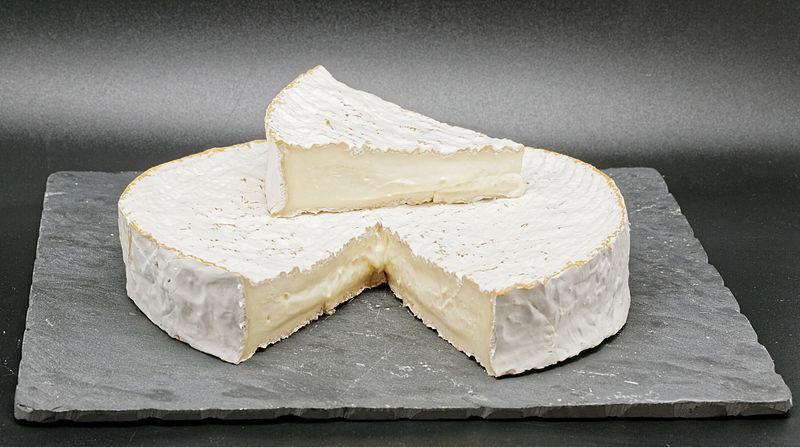
Thesupermat // Wikimedia Commons
Authentic brie
You're no doubt shaking your head because you've definitely served brie on your cheese platter, but unless you made it from scratch, the brie available in the United States is a far cry from the European favorite. Authentic brie is made with unpasteurized raw milk, which the FDA has banned in America. As a result, the only way to eat real brie in the States is to make it yourself.
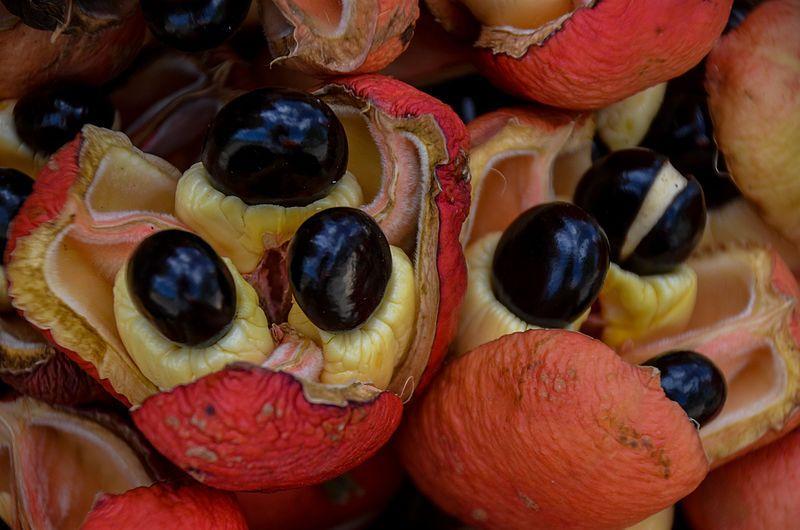
Ralf Steinberger // Wikimedia Commons
Ackee
Think twice before you bring the Ackee fruit into the United States. Ackee fruit is native to South Africa and a favorite in many Caribbean countries. However, it contains hypoglycin A, a toxin the FDA says can be dangerous if too much is ingested. As a result, you can't pop into the supermarket and pick up this fruit from the produce section, but you can find it either canned or processed from companies that are on the FDA's "green list" of trusted growers.
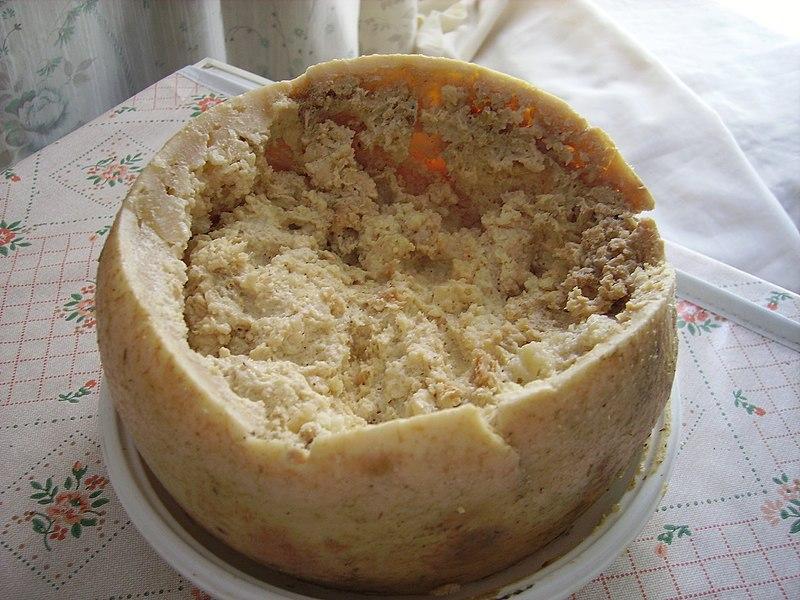
Shardan // Wikimedia Commons
Casu marzu
If you ever find yourself in Sardinia, Italy, and you're feeling brave, then you can try casu marzu, a cheese made from sheep's milk and crawling with live maggots. For obvious reasons, the United States has banned it due to hygienic concerns. It was also banned by the European Union, but the ban was overturned in 2013 because the cheese is considered a traditional food of Italy.
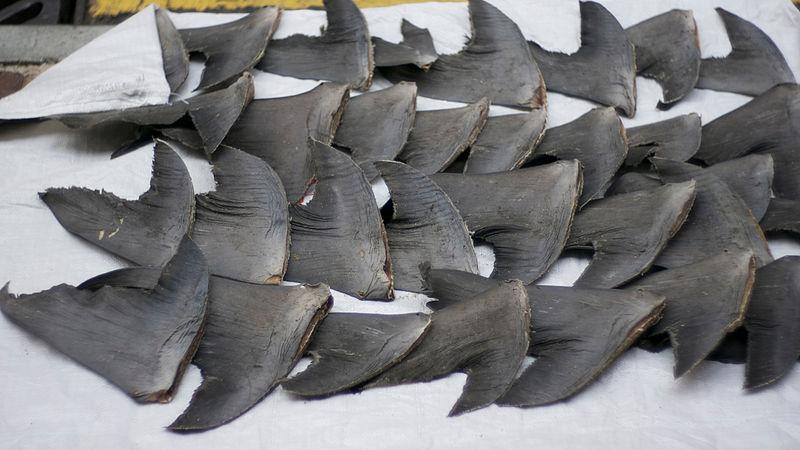
Cloneofsnake // Wikimedia Commons
Shark fins
Foodies have dubbed shark fin soup a delicacy, but the sale of shark fins is currently banned in 12 states. While the dish may be considered delicious by some, there are ethical questions about the practice of shark finning that have led to statewide bans.
The Shark Fin Sales Elimination Act of 2019, which would make it illegal to possess, buy, or sell shark fins (except for dogfish fins), was introduced in January 2019 and passed by the House in November 2019. It has to be passed by the Senate and the president before it becomes law.
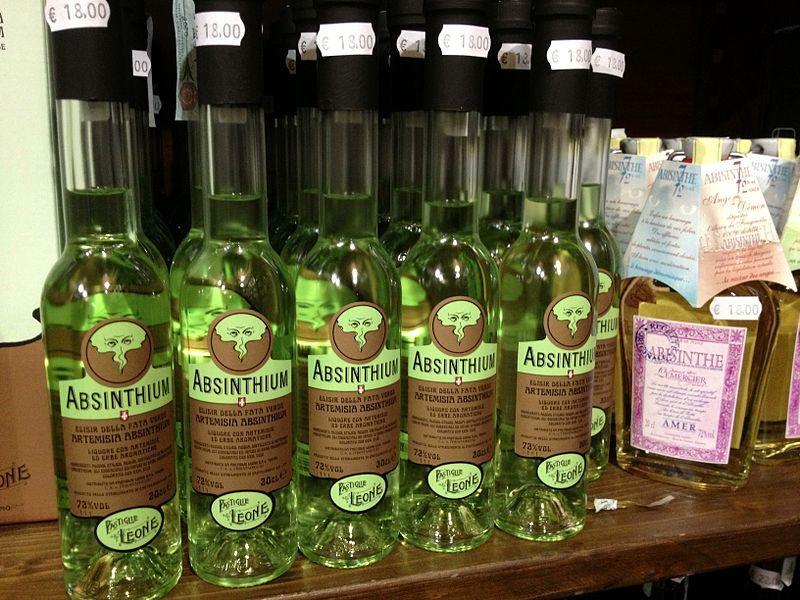
Kjn91 // Wikimedia Commons
Absinthe
Yes, you can buy absinthe in America, but this long-misunderstood drink is only legal if it is considered thujone-free. Thujone is a toxic chemical and a component of wormwood that has long been part of the absinthe formula.
However, it's regulated by the FDA, which is one reason why absinthe wasn't available stateside until 2007. History has played a large role in absinthe's bad reputation, and claims that the spirit causes hallucinations (it doesn't) led to it being banned not only in the U.S. but in countries across Europe for more than 100 years.
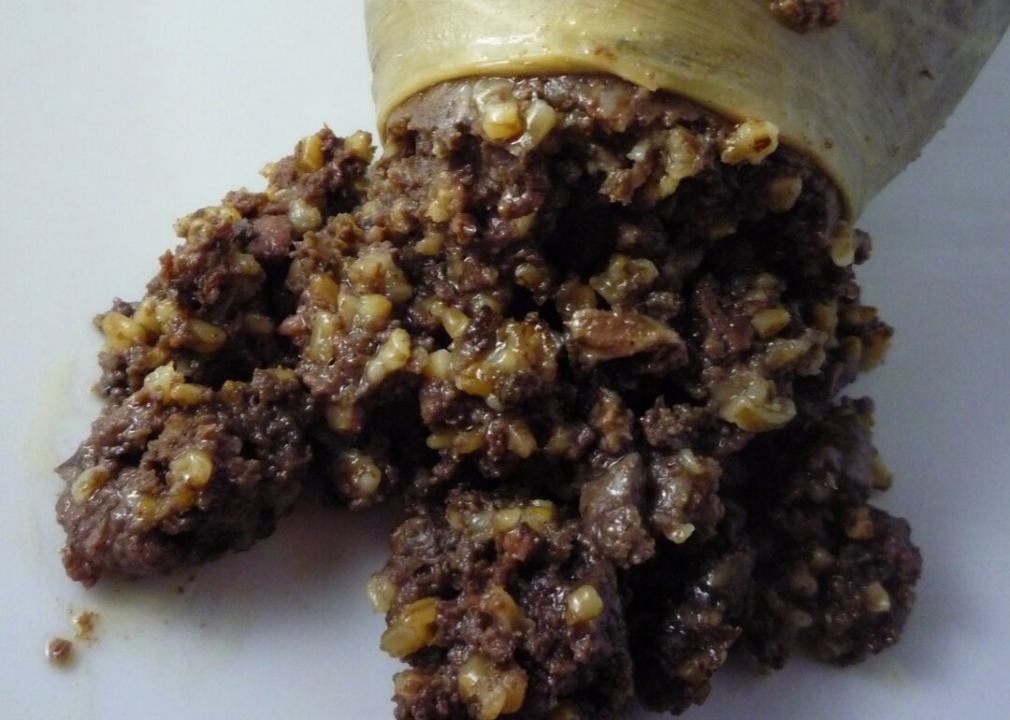
Beck // Wikimedia Commons
Haggis
The national dish of Scotland hasn't been invited to U.S. tables since the FDA imposed an import ban on haggis in 1971. Haggis—which is made from sheep's heart, liver, and lungs; mixed with spices and oatmeal; and served inside a sheep's stomach (or artificial casing)—was banned because, as reported by CNN, the Department of Agriculture "ruled that 'livestock lungs shall not be saved for use as human food.'"
However, the Scottish government is hopeful that the ban will be overturned one day, and Americans will be able to partake in the country's delicacy legally.
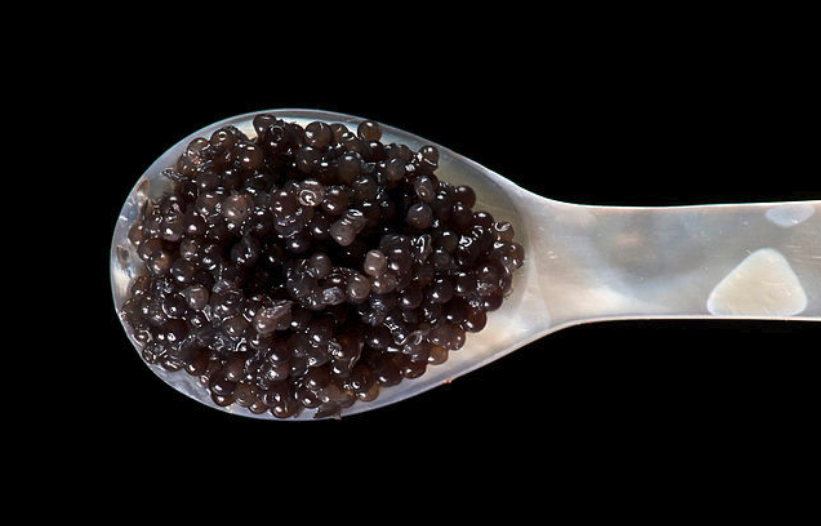
Saibo // Wikimedia Commons
Beluga caviar
Beluga caviar is an opulent hor d'oeuvre that actually landed on the banned food list due to its deliciousness. Unfortunately, people liked the caviar too much, which led to the overfishing of beluga sturgeon. The fish are now a protected species, and as a result, it's illegal to sell the caviar in the United States.
Sturgeon AquaFarms, one of the world's largest caviar producers and America's only legal beluga sturgeon breeder, has a special agreement with the government to donate fertilized beluga eggs in hopes of increasing the species in the wild.
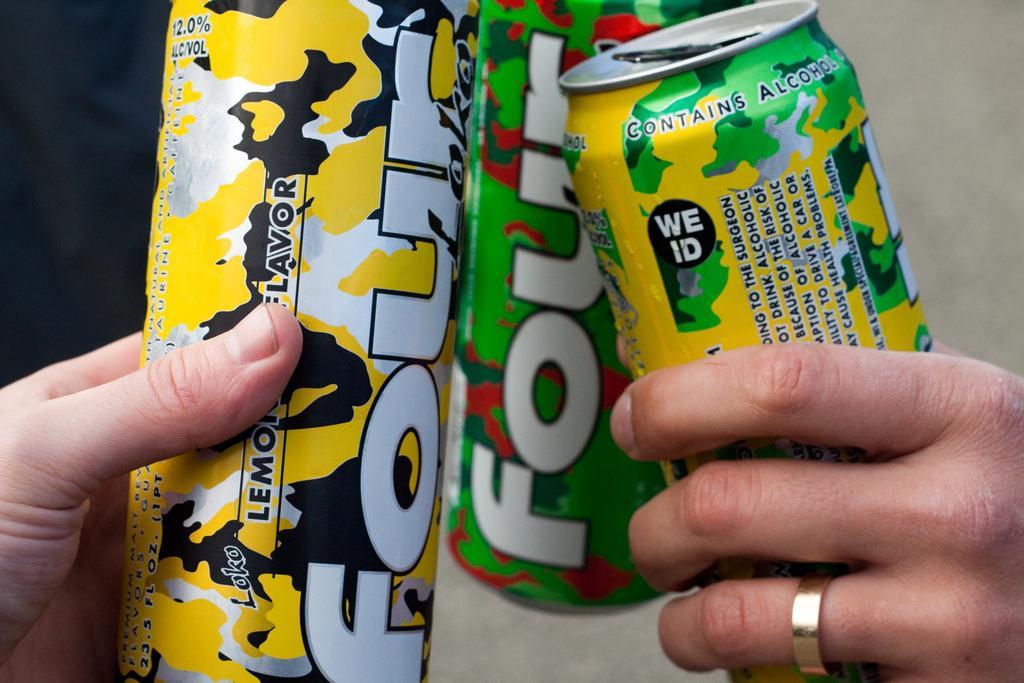
Nick.Fisher // Flickr
Four Loko
Four Loko made headlines for all the wrong reasons when it entered the marketplace in 2005. Originally, the malt beverage was marketed as an alcoholic drink that also packed a caffeinated punch. The drink was known on college campuses as a "blackout in a can," and it's believed to have played a role in the hospitalization of some young people.
Several states, including Massachusetts, began banning the drink at a state level in 2010, while the FDA pushed back against selling alcoholic beverages containing caffeine. Ultimately, Four Loko voluntarily stopped including caffeine in the potent drink, and the noncaffeinated version is still on shelves across the country.
You may also like: Bizarre slang words and phrases from every state
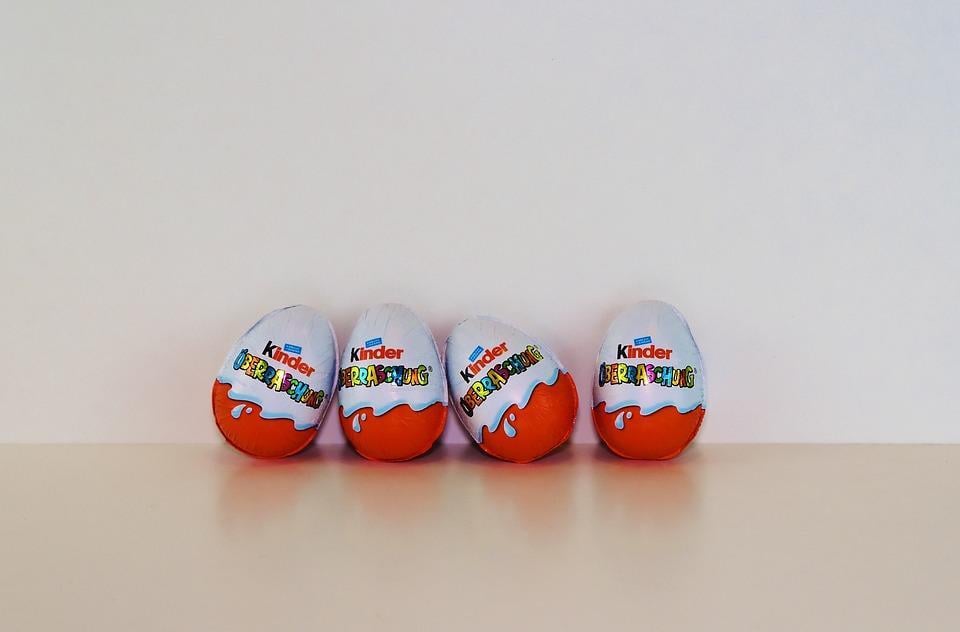
Pixabay
Kinder Eggs
In the 1930s, the FDA enacted a law banning candy from having nonfood items inside. Having nonedibles mixed with edible items poses a choking hazard for consumers, as far as the government is concerned. Sadly, that means the delicious chocolate Kinder Eggs from Europe have been deemed unsafe, and as a result, the hollowed-out eggs with a collectible toy inside aren't sold in America.
The FDA relented slightly in 2017 when Kinder Joy eggs were introduced in the States. The treats remain egg-shaped, but the edible and nonedible portions are separate inside the packaging. Authentic Kinder Eggs are still banned, but travelers who visit Canada, Europe, and most other parts of the world can try the real deal—just don't try to bring any home in your suitcase.
You may also like: Common US foods that are banned in other countries